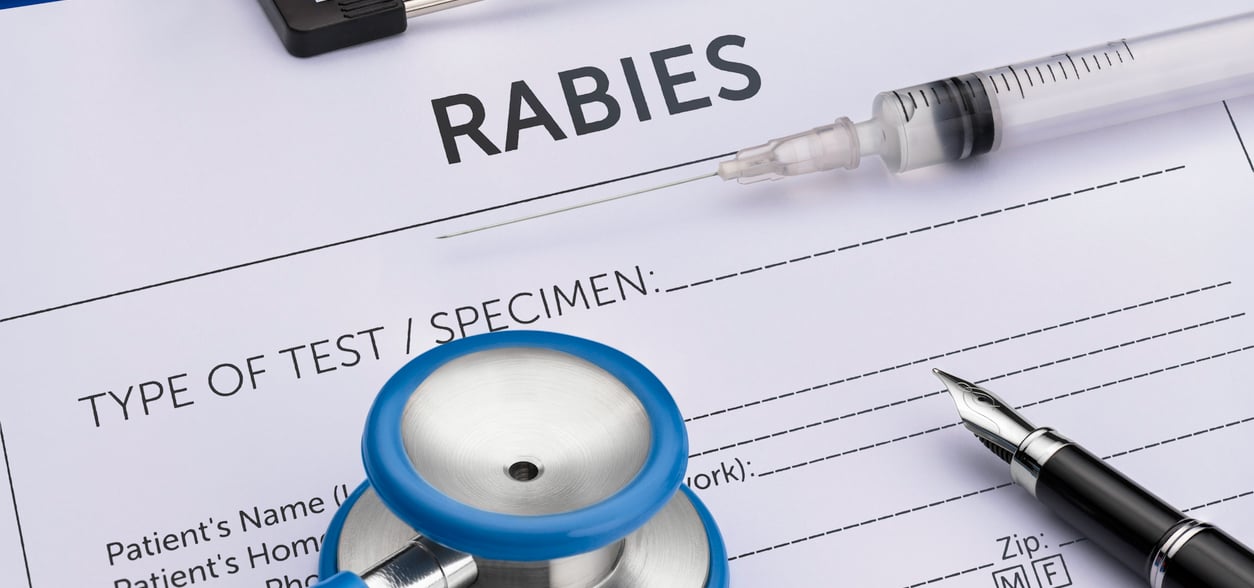Information courtesy of the Colorado Department of Public Health & Environment
The Colorado Department of Public Health and Environment is seeking to connect with people who attended a puppy adoption event on Saturday, July 20, at Moms and Mutts Colorado (MAMCO) Rescue for Pregnant and Nursing Dogs in Englewood. Attendees should call the health department’s hotline at 303-692-2700 during business hours, or 303-370-9395 after hours/weekends/holidays. The health department must screen attendees after a puppy at the event tested positive for rabies on Wednesday. The rabies-positive puppy arrived in Colorado from Texas and has since been euthanized, which is the only way to test for rabies in an animal.
Quick facts:
- The puppy was part of an adoption event, along with its 11 littermates, held at Moms and Mutts Colorado (MAMCO) Rescue for Pregnant and Nursing Dogs, located at 2721 West Oxford Avenue in Englewood, on Saturday, July 20.
- Anyone who attended the event and interacted with the July Shepherd Mix litter (may also be referred to as “The Celebrity Kids” litter) of puppies should contact public health officials to determine if they need to receive prophylaxis.
- Attendees should call the health department’s hotline at 303-692-2700 during business hours, or 303-370-9395 after hours/weekends/holidays or email [email protected].
Animals vaccinated for rabies who have come in contact with the puppy litter may need a booster vaccine.
Rabies is a viral disease that affects the central nervous system. The virus is primarily transmitted through the saliva of an infected animal, usually through a bite, scratch, or licking. The incubation period for rabies is typically between three and six weeks, but can range from days to months for humans or animals depending on the route of exposure.
Rabies is a vaccine-preventable disease in dogs, cats, and ferrets. Colorado typically has an average of 50 positive rabies specimens per year from wild animals such as skunks and bats, which are rabies reservoir species. Colorado has not had a human case of rabies since 1931 and has not had a rabies case in a dog since 2020.
Frequently asked questions:
What will happen to the other 11 puppies in the litter?
The 11 littermates of the rabies-positive puppy were unvaccinated at the time of exposure. There are no licensed products for post-exposure prophylaxis of previously unvaccinated domestic animals, and there is evidence that the use of vaccine alone will not reliably prevent disease in these animals. In these situations, the exposed animals should be euthanized immediately or placed on a strict 120-day quarantine in a facility that can secure them away from humans and other animals. Because strict quarantine is not feasible, the National Association of State Public Health Veterinarians’ guidance recommends euthanasia of exposed, unvaccinated animals. Public health officials are contacting the people fostering these puppies today about surrendering the puppies to Animal Control authorities.
Do the people fostering puppies from the litter need to be treated?
Public health has conducted a risk assessment and recommended post-exposure prophylaxis for 17 people who had close contact with the rabies-positive puppy, including foster families, shelter staff, and veterinary staff. Public health officials will continue to screen people who attended the event and offer post-exposure prophylaxis when necessary. People should call 303-692-2700 during business hours, or 303-370-9395 after hours/weekends/holidays to be screened.
What is post-exposure prophylaxis for rabies in humans?
Rabies post-exposure prophylaxis in humans is a shot of human rabies immune globulin and a rabies vaccine administered on day 0, which is the first day the patient arrives at the hospital. This is followed by additional doses of the rabies vaccine on day 3, 7, and 14. Rabies post-exposure prophylaxis is a safe and effective way to prevent rabies infection following an exposure.
Do any other animals (not from the litter) need to be treated?
CDPHE, in coordination with local public health agencies, continues to identify other possible animal contacts. Generally, animals that are vaccinated for rabies are not at risk, but may need a booster vaccination.

